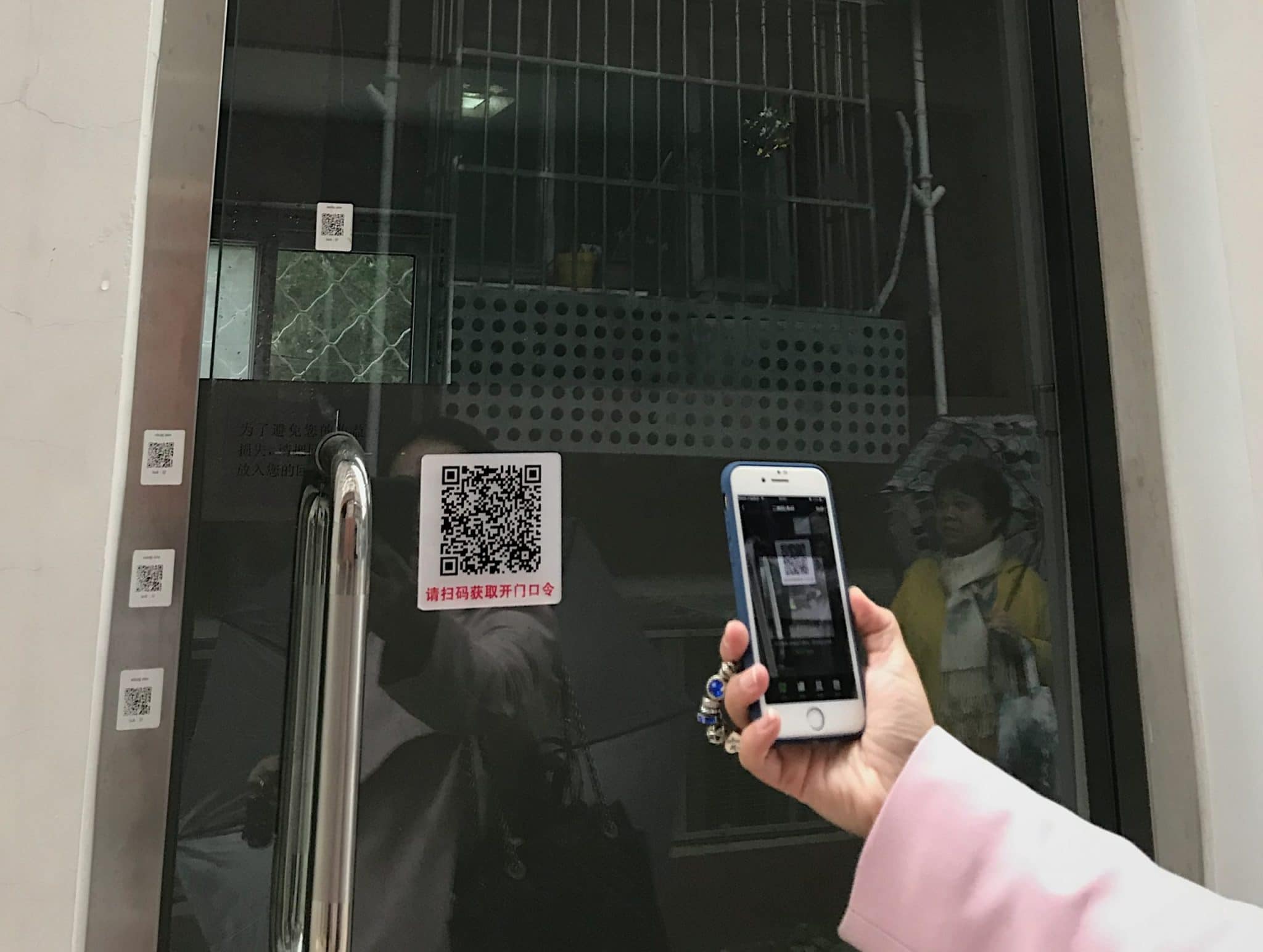
A technology-based system provides residents with a flexible and transparent way of recycling. (Photo: CDB)
Beijing will soon enforce new waste-sorting rules affecting all of the 21 million people living in this mega-city. The Beijing Municipal Commission of Urban Management recently published a draft of the new rules which will remain open to public feedback until the 13th of November. While the details remain unclear, one thing seems certain: compared with the waste-sorting rules that were implemented in Shanghai this July, people in Beijing can rest assured that their city’s rules will be a bit less intense.
Under the new rules, Beijingers are required to dispose their waste into four categories: kitchen waste, residue waste, recyclable waste and hazardous waste. Offenders will face a fine of 200 yuan and possibly also a lower social credit rating1. Currently Beijing churns out 26,000 tons of rubbish every day. It is believed that the new rules will divert about two-thirds of waste from landfills and improve the efficiency of incinerators2.
According to data released by Alibaba, the number of visitors from Beijing to the Augmented Reality waste-sorting app on Alipay has doubled since the draft bill was announced on the 14th of October. Furthermore, there are currently 1.7 million users from Beijing selling recyclables on a recycling platform developed by Alipay. Since the platform was launched in June, they have saved 26,000 kilograms of ‘energy’ that can be converted into 1,200 real trees under Ant Forest, a special tree planting scheme by the Ant Financial Services Group3.
Having learnt from the confusion and apprehension that Shanghai went through, Beijingers would seem to be more receptive to the new rules.
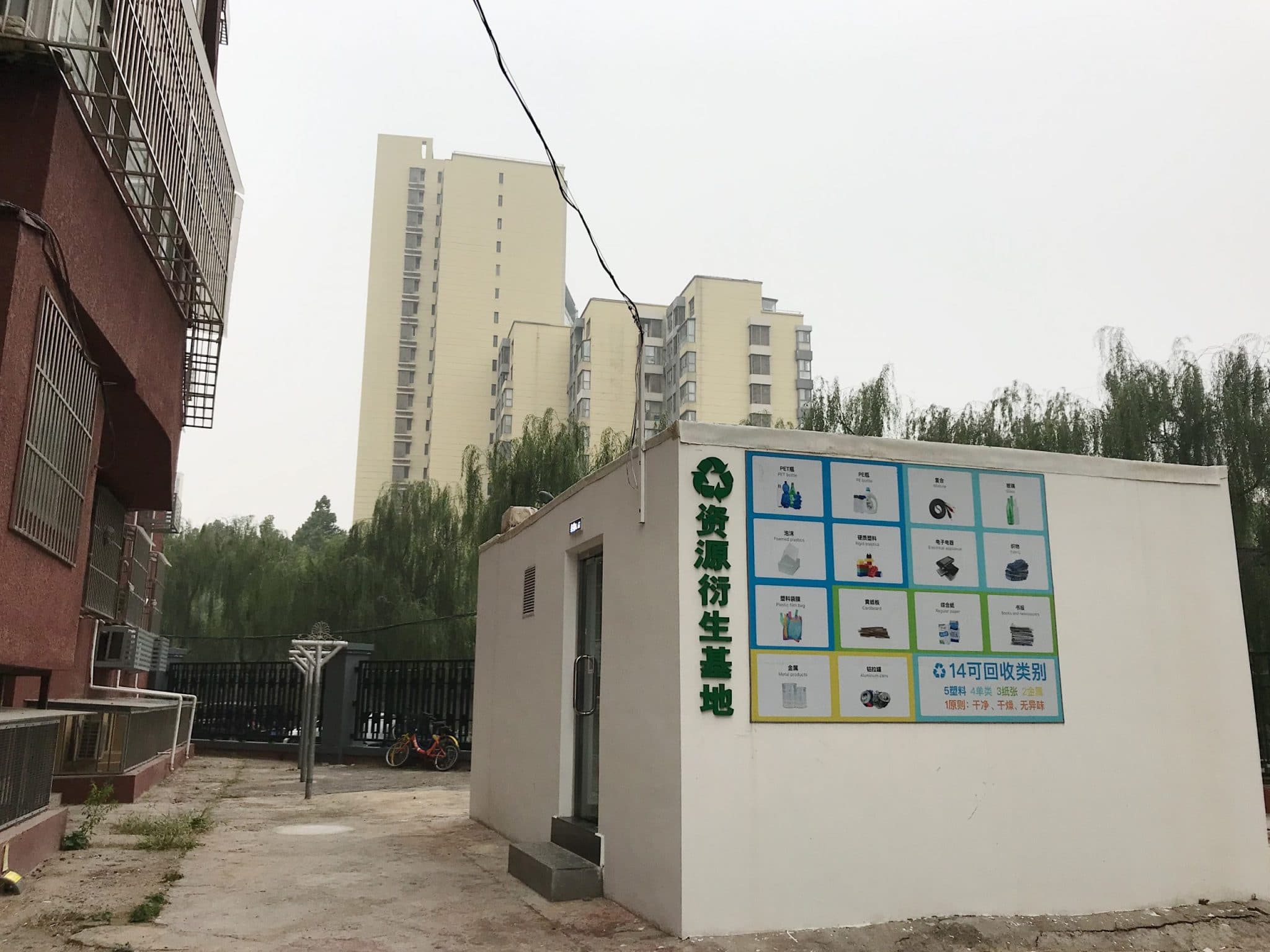
A permanent recycling station located in Guangximen Bei neighbourhood. (Photo: CDB)
When strolling through Guangximen Beili in Chaoyang District, you won’t miss the tiny yet modern white shed standing at a corner of the neighborhood. This is the recycling station built by the community two months ago in partnership with Aobag, a recycling company originating in Chengdu.
Under this voluntary campaign, residents are encouraged to purchase two bags from Aobag at ten yuan each and start collecting recyclables that fall under the fourteen designated categories: PET, PE, glass, Styrofoam, rigid plastic, electrical appliance, fabric, plastic bag, cardboard, tetrapak, books and newspaper, metal and aluminium. Once the bag is full, participants can drop the bag at the station anytime by scanning the QR code at the entrance. There are clean empty bags on the rack ready for them to start a new round of collection.
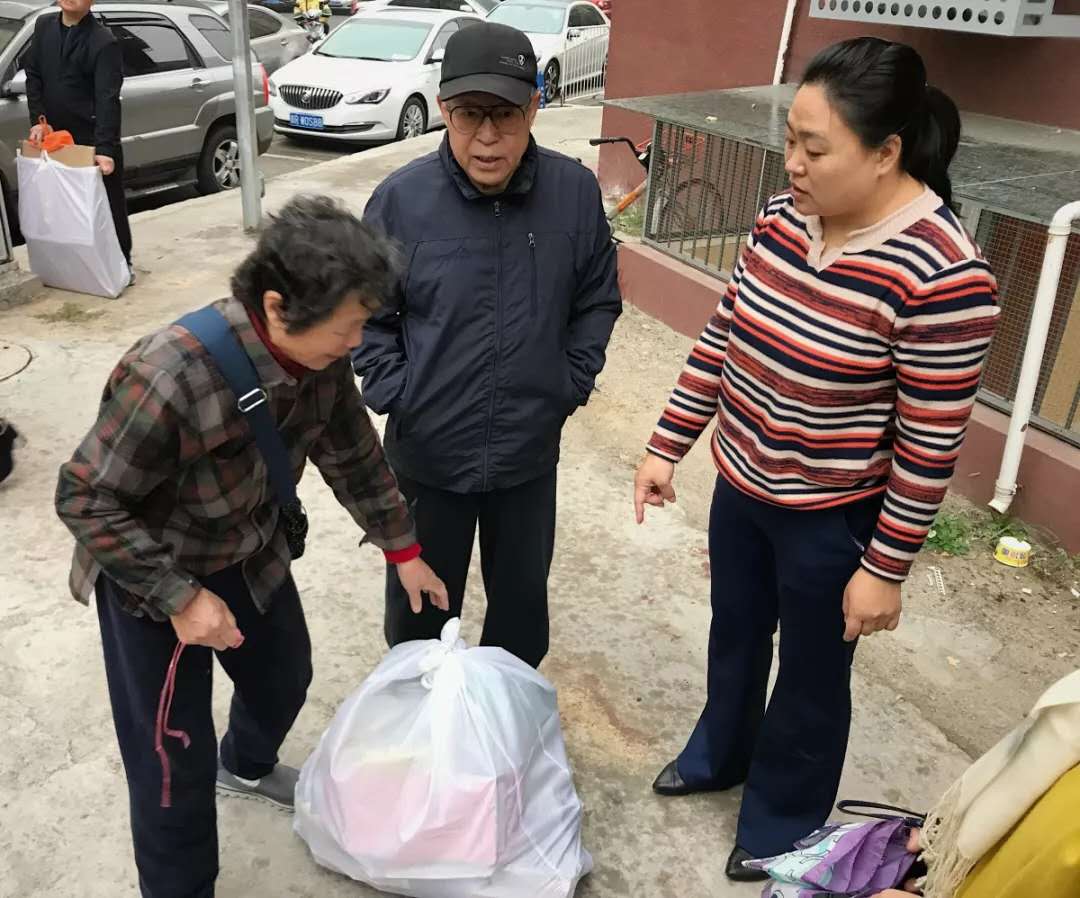
According to Zhang Hongxia (right), the Community Secretary of Guangximen Beili, the elderly are relatively supportive of the campaign. (Photo: CDB)
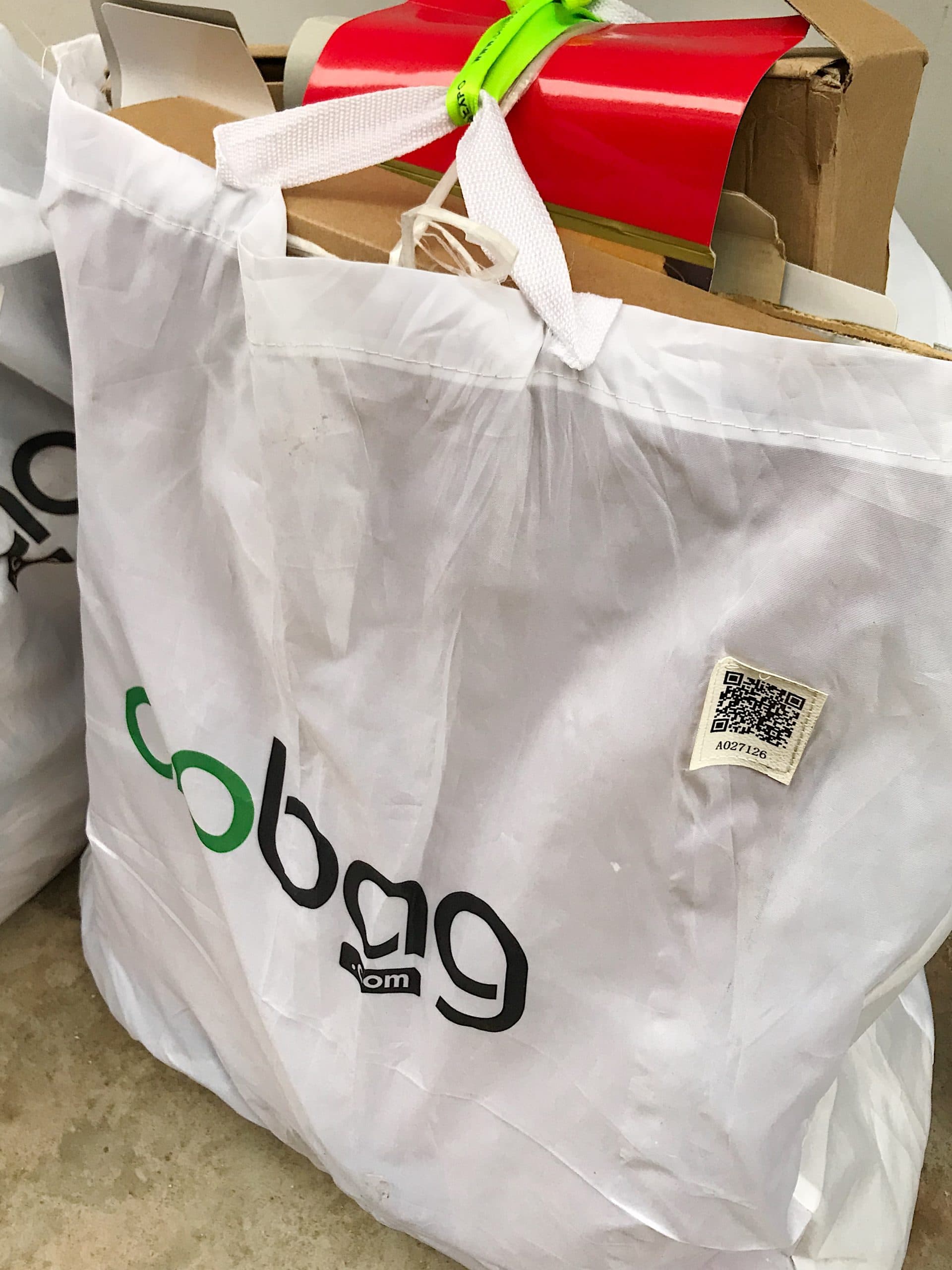
A QR code is attached to each bag for tracking purposes. (Photo: CDB)
Much to our surprise, during our visit in a rainy morning, quite a few people dropped off big bags of recyclables despite the bad weather. We saw volunteers appointed by the community patiently explain to the elderly how to get a new bag by scanning a QR code and how to track their record on the app.
According to Zhang Hongxia, the Community Secretary of Guangximen Beili, 177 families have been participating in this program and contributing a total of 6,200 kilograms of recyclables since its launch on the 25th of August this year.
“Our residents are concerned about waste-sorting but there’s a lack of confidence in the current recycling system. People are reluctant to spend time on waste-sorting if the recyclables are going to the landfills anyway.” Zhang Hongxia has been promoting recycling since 2006. As she recalls, back then it was much more difficult than it is now, as environmental protection was given less attention by the government. “Now it’s much easier thanks to the hardline policies and strong enforcement.”
The response of the Guangximen Beili neighbourhood to this newly-implemented campaign has been very encouraging. From data provided by the Aobag app, in the two months since it was launched the total weight of recyclables collected from this station has beaten the other 28 stations in Beijing combined. Due to the overwhelming response, Aobag has had to increase the pick-up frequency from once a week to three times a week.
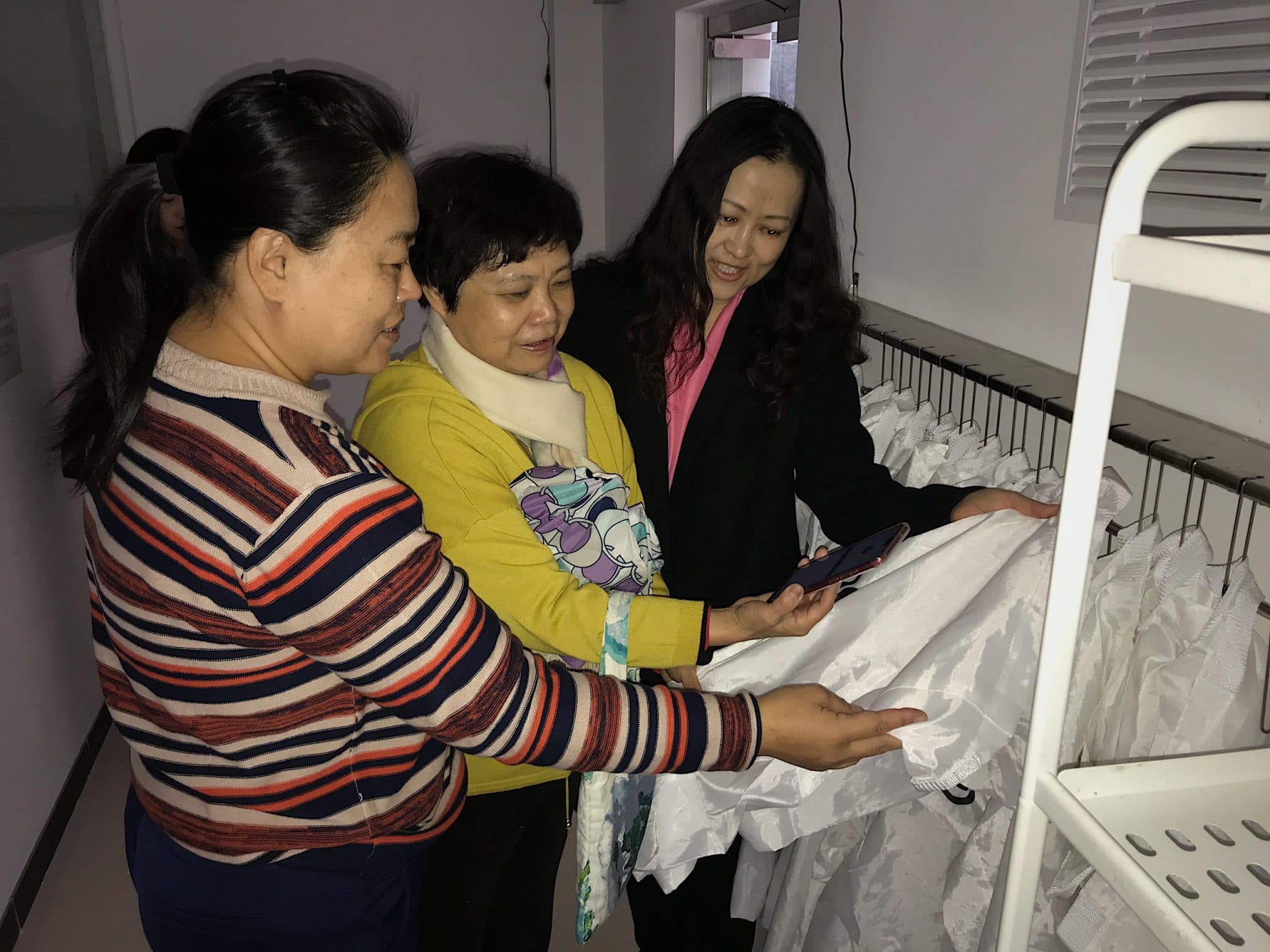
Volunteers trying out the system on the app. (Photo: CDB)
Unlike most recyclers in Beijing, Aobag doesn’t provide free facilities for the partnering community. The communities taking part in this program have to build and design their own drop-off station and pay for the check. The total building cost of the shed in Guangximen Beili is around 40,000 yuan, which according to Zhang Lin, the Project Manager of Aobag, could be one of the barriers for other communities that are not participating in the program.
“Our vision is to provide a science-based recycling platform allowing everyone to recycle everything. Every single action is traceable on the app, for example when and where the recyclables are picked up, sorted and processed. Participants can be reassured that their efforts will not be in vain. The icing on the cake is that participants get rebates every time they recycle.”
Currently, Guangximen Beili is the only drop off point in Beijing that is open to the public. It allows anyone from anywhere in China to recycle; all they have to do is to purchase the specially designed ‘Aobag bag’ and start putting washed, dried and odourless recyclables into the bag. “Some people drove all the way from Changping and Shunyi to deliver their recyclables here”, says Zhang Hongxia.
Despite the good response, she stressed that more work needs to be done in order to fully embrace the new rules. “We have a total of 2000 households in the neighbourhood but currently only 177 of them have joined the program.” She admits that recycling is troublesome and time consuming even to a conscientious citizen like her, hence education is very much needed to raise awareness.
Zhang Lin agrees with her. “Most residents are not yet aware of this campaign, especially the young people. Many of them are busy with work, so they are not actively involved in community-building.”
However, Zhang Lin is optimistic about the new rules that are coming out some time soon. “Beijing houses a large population, and each of us comes from a different background with a different level of understanding on recycling. In the past only those who really cared about the environment would recycle; but after the implementation of the new rules everyone will have to be part of it, whether they like it or not.”
Zhang Lin believes that the new rules will serve as a fundamental principle for communities to follow. “In order to achieve the goal set by the local authorities, community leaders have to find ways to engage with different waste-management companies to properly divert the waste. All stakeholders in this industry, regardless of size, will get a slice of the cake from the new change.”
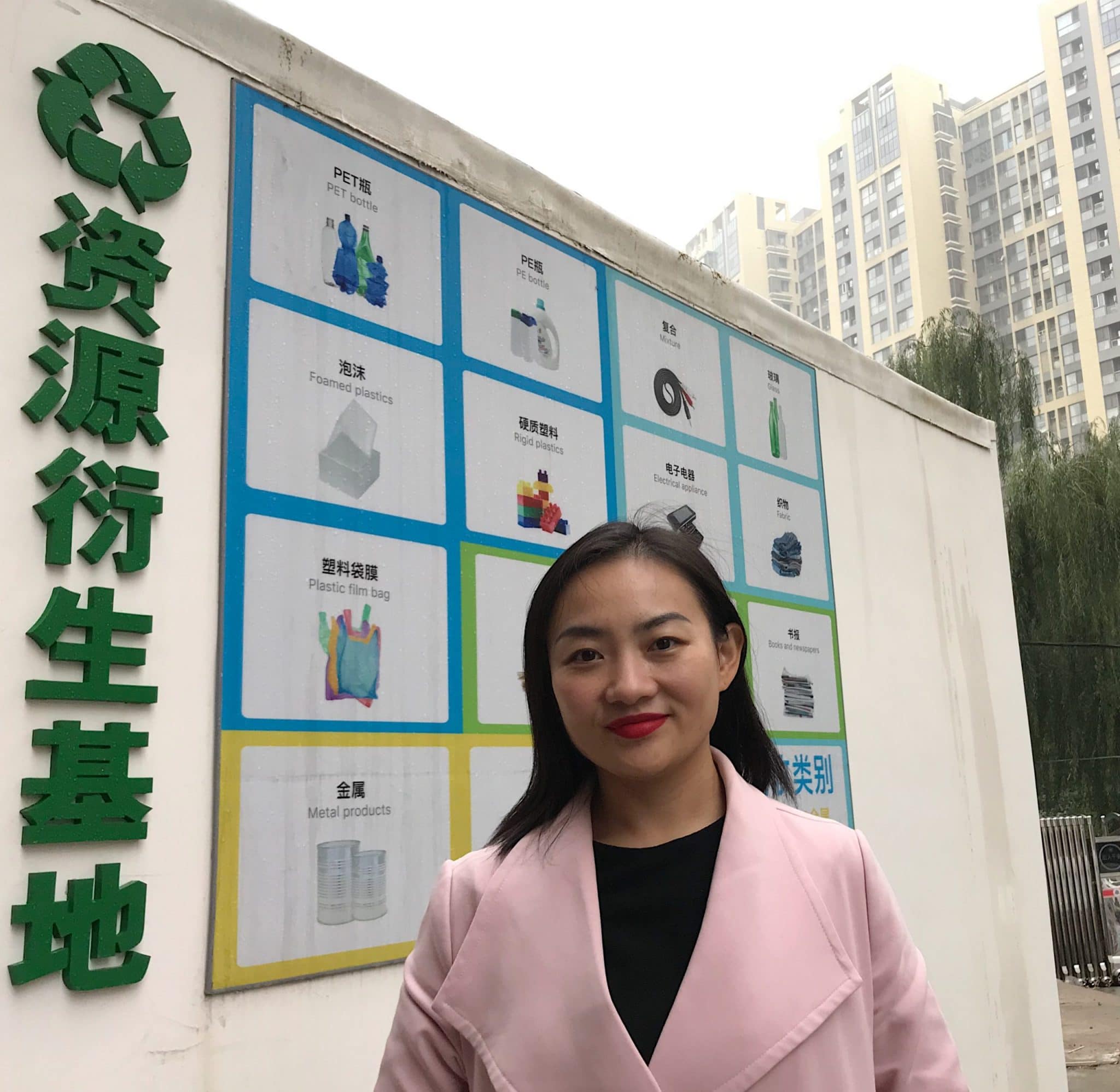
According to Zhang Lin, the Project Manager of Aobag, Guangximen Beili has the highest participation rate among the 28 stations in Beijing. (Photo: CDB)
References:



